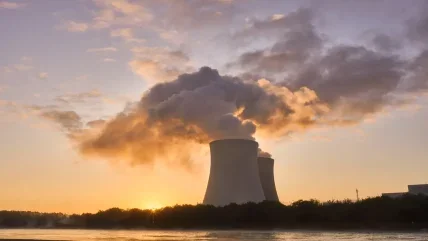
The UK and the US have formalised a partnership at COP29 to accelerate the deployment of advanced nuclear technologies, aiming to decarbonise industry and strengthen energy security.
During climate discussions in Baku, UK Energy Secretary Ed Miliband and US Deputy Secretary of Energy David Turk signed a landmark agreement. This pact will channel billions of pounds into nuclear research and development, leveraging the expertise of leading academic institutions and innovative nuclear companies.
Under the agreement, the UK will take a prominent role in a forum dedicated to sharing information on advanced nuclear technologies and ensuring their industrial application by 2030.
Advanced modular reactors (AMRs) are among the technologies being prioritised. These reactors provide low-carbon heat and power, enabling decarbonisation of sectors such as aviation fuel production, hydrogen generation, and advanced steel manufacturing. Their modular design allows for factory production, making them faster and more cost-effective to construct.
This initiative supports the global commitment made at COP28 to triple nuclear energy capacity by 2050, a pledge endorsed by 31 nations, including the UK and the US.
The UK is also reversing its history of underinvestment in nuclear energy. It is advancing its programme for advanced nuclear reactors and progressing the Great British Nuclear small modular reactor competition, alongside the ongoing development of the Sizewell C project. These efforts will not only secure thousands of skilled jobs but also bolster the UK’s energy independence beyond 2030.
Energy Secretary Ed Miliband said: “Nuclear will play a vital role in our clean energy future. That is why we are working closely with our allies to unleash the potential of cutting-edge nuclear technology.
“Advanced nuclear technology will help decarbonise industry by providing low-carbon heat and power, supporting new jobs and investment here in the UK.”
Under this new agreement, the Generation IV International Forum will exclude Russia, ensuring that future collaborations are limited to parties committed to mutual cooperation and adherence to nuclear safety standards.
The agreement is set to take effect on 1 March 2025.






